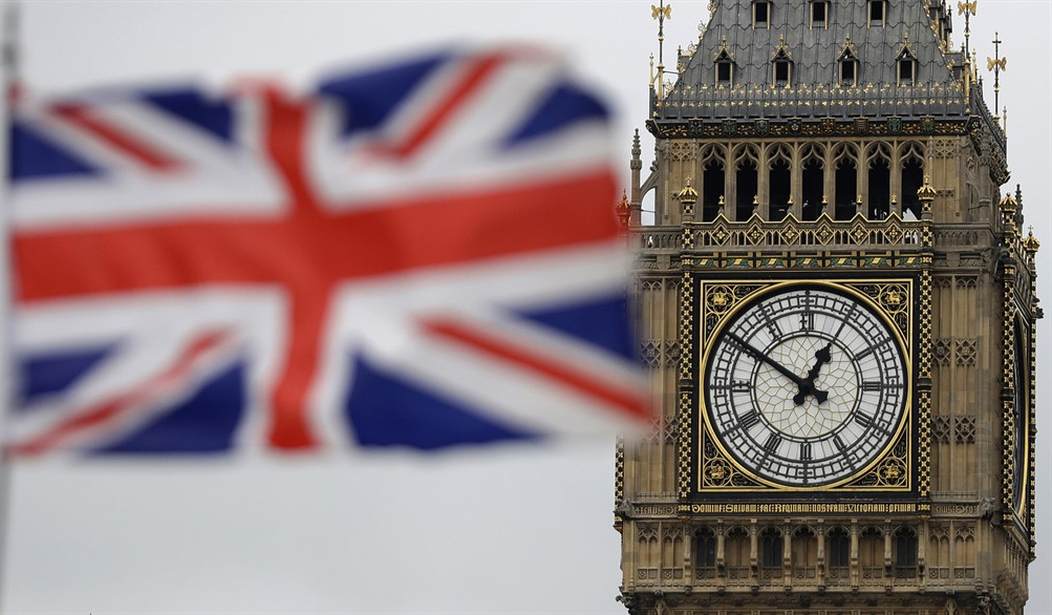Every time the government - any government - messes with a market, bad things happen. Markets are messy and often disorganized, but they generally get things right in the end.
In Europe, though, the various governments seem to be determined to addle the market for electrical generation with a long-handled spoon, and engraved on the handle of that spoon are the words "Net-Zero." Zero emissions is a near-impossible goal, and even more so without nuclear power, which most of our friends across the Atlantic seem determined to do without. But that doesn't stop the government of the United Kingdom, for example, from pushing "green" energy policies to appease climate scolds, and the British people are paying the price. I mean that literally; the UK has some of the highest electricity rates in the developed world, and their green energy policies are to blame.
As we are well aware, the UK has some of the highest electricity prices in the world.
It is commonly claimed that the rapid price rise in recent years has been driven by the soaring price of natural gas. In fact, this is only a small part of the story.
I have analysed OFGEM’s energy price cap workings, comparing this quarter with Jan 2019, when the first cap was implemented.
Here are the results:
— Ward Clark (@TheGreatLander) December 5, 2024
Here are some of the policies that are driving these prices up:
Smart meters. We all have meters on our homes and businesses to record our electrical usage; that's how we are billed. Some of us are old enough to remember when the "meter man" walked and drove around once a month, manually recording our meter readings on a pad of paper. Nowadays that's done automatically, but smart meters kick that up a notch, recording our use day by day and hour by hour - and some can throttle our energy use at peak hours, such as during unseasonable weather, or peak usage times such as late afternoons and evenings.
Constraint payments. Wind farms are actually paid to throttle back output if their generation exceeds what that grid can endure at the moment. These costs are, obviously, passed on to taxpayers.
Inefficient gas generation. It's unclear what the article means by this, but presumably, the juggling act between steady-state and intermittent sources causes the natural gas generation to have to adapt; ramping production up and down is less efficient than running continually.
MP Nigel Farage, among others, has been standing up against this stupidity:
Bursting into an otherwise reassuringly dull discussion on how enthusiastically to pursue mass migration and net zero, Nigel Farage has torn up electoral convention by disagreeing with his opponents on core issues. In a complete break with democratic norms, the demagogue’s manifesto promises to “Scrap Annual £10 Billion of Renewable Energy Subsidies”, with Farage declaring on X that “Reform UK will scrap Net Zero targets, which will save us £30bn annually.”
The numbers bear MP Farage's claims out:
In the upcoming Contracts for Difference (CfD) auction for renewable subsidies, the government is offering a strike price of £85.05/MWh for solar, £89.23 for onshore wind, £101.78 for offshore wind and a mouth-watering £245.38 for floating offshore wind. All of these are above the current (elevated) market reference price of electricity, which has averaged £63.80/MWh this year, and well above the historic norm of about £45/MWh.
Subsidies drive up prices. This is as reliable as the sun coming up.
See Related:
Fossil Fuels Are a Blessing That Developing Countries Should Fully Embrace
'Green' Energy Sources Have Too Many Problems – Like Unreliability and Fragility
Fusion Power Could Change Everything – but It's Always Forty Years Away
Let the once-and-former-Great Britain be a lesson to us all. When the government meddles with markets, prices go up. When the government puts a heavy thumb on the scale in the form of subsidies and other interference, prices go up. In the energy markets, the United Kingdom's government has done precisely this, trying to drive climate-scold-appeasing "green" energy programs through regulation and subsidies. Now our British cousins are paying some of the highest electricity rates on the planet.
Let that be a lesson to us all.














